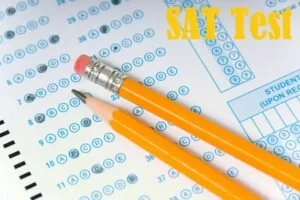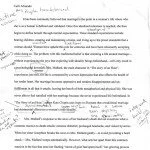Tag Archives: teachers
Should you get too involved in your child’s homework?
There are lots of problems that your children can face at different stages of their education. It all varies and depends on the basis of their age. The issues of a first grader are always going to be different from that of a third or a seventh grader. Now, the question that needs to be asked is what you are going to do about this situation as a parent. At times, you may want to give just a few pointers to your child but then you may have to take a greater part in the same. In fact, it has also been seen that parents have often done the homework that their children have found to be difficult.
Been there done that
This is one experience that almost any and every parent has gone through at some or the other point of their lives. So, if you are facing that situation as well do not consider it to be a unique one. Do not think that you are the only one in such a predicament. It is really very tough to maintain that line between getting too involved with your child’s homework and just helping them a little bit with their work.
You need to be careful
As parents you might balk at the suggestion that you may be too much involved with your child’s homework. However, experts say that it is always better to let children figure out how they can solve the challenging assignments by themselves, without taking any help from anyone else – even you, their parents. This is an important part of their education. They argue that school should not only be about grades. They should be able to write papers by themselves and also ask questions to their teachers in school.
Accepting failure
It is not important or possible that your child will score well in each and every test and assignment that he takes. Failure is a part of life and the earlier they experience it the better. This is because any failure and ensuing disappointment will have your child looking for answers. The precise intention in such a case would be to make sure that such disappointment never comes back in their lives ever again. This is something that will help them face the tougher challenges of life later on. They should learn from the mistakes they are making so that they never make them again.
How To Engage Yourself In Your Classroom?
Engagement is an integral part of study and hence it is directly associated with the classroom success. In fact, you can really observe that when you are engaged in your classroom, you become an active and energetic participant in your topic. It has been found that if students don’t take interest in their study by not attending class regularly or by not engaging themselves during lectures, they are stuck and request their peers “write my essay for me”. The following tips will assist students fully engage in their classroom and they will definitely be able to get better grades, while improving their learning.
Attend You Class Daily
Attending class is the very first step to stayengaged in your learning. This first step will not only enhance your overall comprehending of your course material, but this approach will also let you to raise your concerns if you’re unconvinced about your topic. In fact, if you miss your class you will put yourself behind, and ultimately this approach will make it difficult to keep up and concentration in upcoming classes. Moreover, many teachers, comprising your class attendance,who are the part of your final grade, can have a constructive impact on your final grade.
Be Prepared
The process of engagement begins before you even attend your class. You’ll have to make sure you’re fully equipped to show your best effort by reviewing your course material before going to your class and by considering what topic has been planned for the coming class lecture. Moreover, you’ll also have to ensure that you have completed all your reading tasks and take notes, because through this approach you’ll be fully prepared for participating actively in class and following discussion. The approach of reading will basically give you a comprehensive and thorough understanding and you’ll be able to extend your knowledge base. At the end, try to ensure you have all the required tools to get success in your class, and for this you’ll have to bring your relevant textbook to class, along with your notebook.
Limit Distractions
The process of limiting distractions begins when you reach to your class. At first, you’ll have to choose your seat in class in a very strategic manner, because this approach can really have an immense impact on your engagement and capability of focusing. It has been recommended by experts to sitin the “T zone”. It means that you should sit in the front and centred area. If you sit in this zone, you’ll be assisted to keep you attentiveduring the lecture. Further, you’ll have to make sure strong focus by giving no attention to technology, means you must turnoff your mobile phone, stop internet surfing, etc.
Actively Participate, Ask Questions and Get Rid of Your Concerns
One of the easy ways is participating in class discussions to make sure that you are very active and engaged. When you have your say and raise your concerns by asking questions or give an answer to a question, you’re basically turning the class lecture into a conversation, and it means that you’re really be engaged in classroom discussion. Keeping the class material in mind will be simple, and teachers frequently appreciate and reward participation with a superior grade. Moreover, keep in mind that you don’t need to be hesitant to raise your concerns about the topic by asking questions if you’re not convinced and want to get comprehensive information about the topic.
Note-Taking
Note-taking is an effective way and it is a vital part to your learning. This approach will really encourage the classroomengagement. Note-taking approach will push you to pay proper attention to class lecture and discussions and restrictall your disruptions. There are many note-taking strategies including visual, aural, read/write, and kinaesthetic. It’s upon you what note-taking approach you will decide that works best for you. Any of these note-taking strategies doesn’t end when class does, as you should go through your notes even following class and edit them if necessary.



















